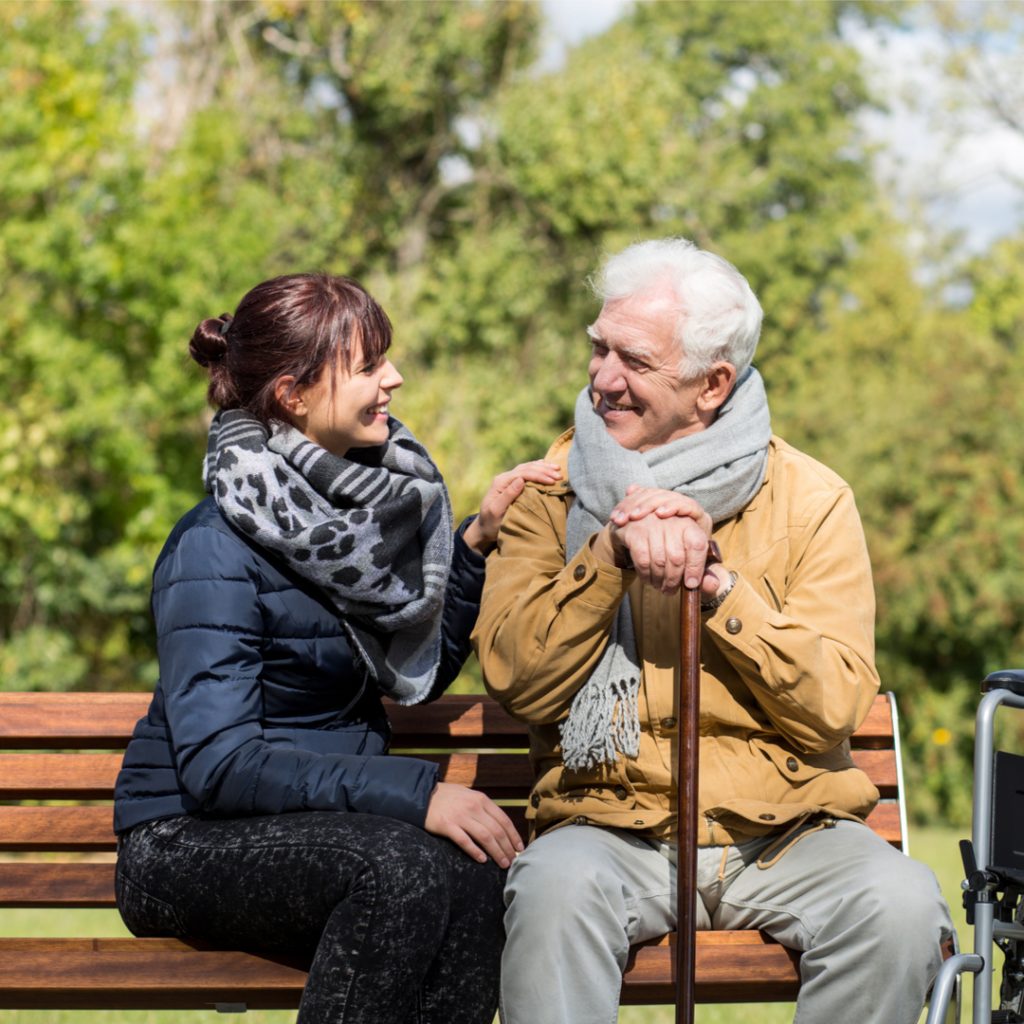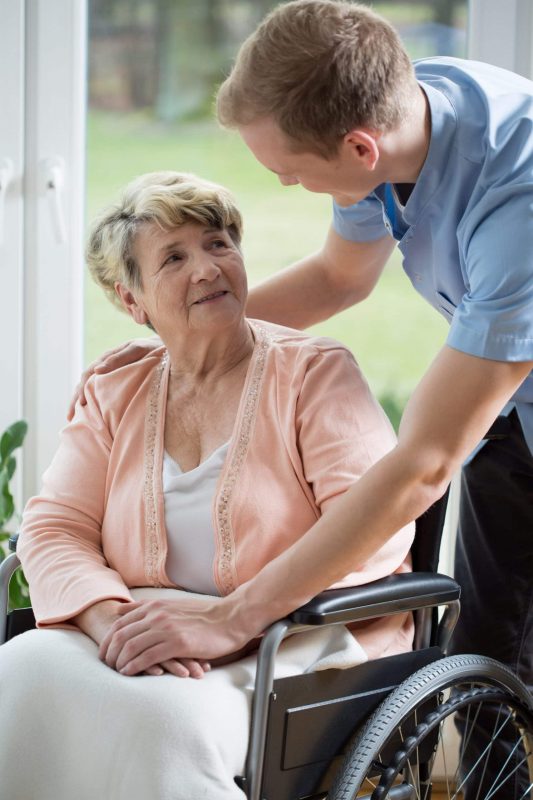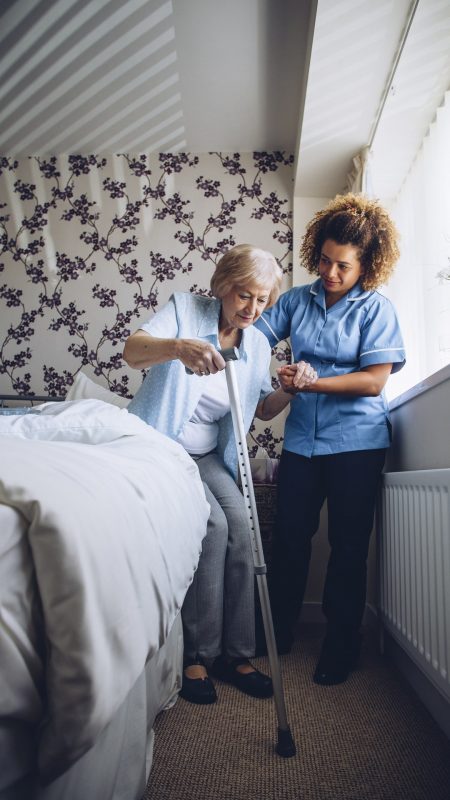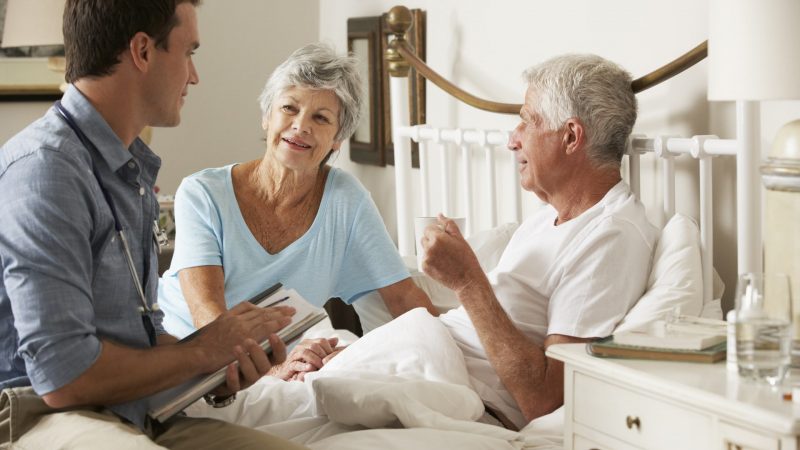What is palliative care at home?
Palliative care at home involves supporting people with a life-limiting illness to live well at home.
A palliative care plan is person-centred, meaning it considers the whole person to ensure they enjoy a good quality of life as their illness progresses. Each palliative care plan is personalised and usually involves one or more of the following:
• Managing physical symptoms of pain
• Administering medication
• Your personal care needs including personal hygiene, dressing, meal preparation and eating
• Keeping socially active by accompanying your shopping, to appointments or simply going out for a stroll
• Understanding your emotions and the reaction of others
A carefully considered palliative care at home plan should always promote independence and wellbeing and should be regularly reviewed to make sure your care needs are being met.
What are the options for palliative care at home?
There are quite a few options when it comes to palliative care at home. You can choose from regular home visits at specific times of day or night. Visits range from 30 minute visits once a week to several times a day or overnight care.
During a care visit, a carer will provide support in accordance with an individual’s person-centre care plan. This could include one of more of the following - personal care, medication support, meal preparation home help or companionship care.
What is the difference between palliative care and end of life care?
Most people would have heard of the terms end of life care and palliative care, but it’s easy to confuse the two.
For a start, palliative care is often misunderstood to be end of life, when for many people it involves living well with a life-limiting illness. It could be that, with the right support, a person lives well with a palliative condition for many years.
End of life care, on the other hand, involves treatment, care and support for people nearing the end of their life. It is an important part of palliative care but involves different care needs.
Where palliative care focuses on living well every day, end of life care helps a person live as comfortably and well as possible in the time that they have left. As with palliative care, end of life care at home often involves close communication with family and friends.
What makes a good palliative carer?
Aside from being suitably trained and experienced, there are many attributes that make up a good palliative carer.
Having an understanding and an appreciation for the client’s daily challenges – both physical and emotional – is important. Any life-limiting illness comes with its ups and downs and your carer will understand this – their job is to help you have more ups than downs.
A good palliative carer takes the time to understand your concerns and will make sure that your care needs are being met and supporting you to live well at home.
Compassionate and caring are equally important traits, as is humour and companionship. That’s why Nayland Care always matches you with a carer who you can have confidence in and who we know you’ll like.
Can you have palliative care at home?
Absolutely. Nayland Care helps many people with a life-limiting illness to live well at home. Palliative care at home enables you to stay in the place where you feel the most comfortable. With the support of an expertly trained compassionate carer, you can receive palliative support at home.
Whether you’re looking for respite visits, daily care, or intermittent visits, palliative care at home is possible. Home carers support you with personal care, symptom management, medication, meal preparation and companionship.
Home care visits range from 30 minutes up to an entire day depending on how much care you need and wish to have. You can also arrange palliative care visits for several times during the day.
What does palliative care mean?
Palliative care is the term used to describe the type of care given to someone who is living with a serious or complex illness. The purpose of palliative care, which is often described as supportive care, is to optimise the quality of life of the person receiving care.
Palliative care at home is where a person receives support from carers to enable them to safely live at home.
Palliative care does include end-of-life care but is not exclusively linked to terminal illness. People suffering from a life-limiting or serious illness who go on to be cured or enter remission from a disease may also receive palliative care at home.
For many people, palliative care at home gives them the support they need to be able to live a fulfilling and happy life. In fact, some people live for many years with a palliative diagnosis. The important thing is that having a carer help with a variety of tasks can promote independence and enablement.
Palliative care at home is not offered by every care agency though, and neither should it be. By its very nature, it requires knowledge, training and experience to help a person with:
• Managing pain
• Administering medication
• Personal care, including personal hygiene, dressing, meal preparation and diet
• Keeping active and social
• Understanding and managing emotions
This is why, at Nayland Care, our carers are trained in palliative and end-of-life care, and many are working towards a nationally accredited diploma.
How long does palliative care last?
There is a popular misconception that palliative care is purely about end-of-life care, and therefore the care is short-term. However, most palliative care at home visits are made to people who have been living with a serious illness or disease for quite some time, who may or may not recover.
The length of time a person needs palliative care at home or in a hospital depends entirely upon their care needs and at what stage they are in their illness.
Essentially, a person can receive palliative care at home at any point in their illness. Some people receive care for their last few weeks or days, while others have support for years. You can also receive palliative care at home in conjunction with other types of care.
An individual home care plan should take account of the individual’s medical, physical, emotional, social and personal care needs. In essence, palliative care at home enables a person to live as full and comfortable a life as possible at home for however long they are assessed to need support.
How many forms of palliative care are there?
Clinically speaking, there are four main categories of palliative care: hospital palliative care, residential palliative care (usually at a hospice or care home), hospice respite palliative care, and palliative care at home.
The categories are mainly used to describe where the person is receiving care. If at a hospice, usually, a person is receiving end-of-life care.
For those looking to safely live at home during their illness, palliative care at home is often assessed to be the best option. This can take one of two forms; specially trained palliative carers move into a person’s home to provide 24/7 support or home visits arranged at certain times of the day or night.
Palliative care at home visits are not just for people who live alone. Being a carer to someone with a complex health condition can be incredibly difficult. Palliative care at home can therefore give carers the respite they need to tend to other jobs and have a bit of time to themselves. It can also be very helpful when perhaps an individual does not want a loved one to tend to their personal care needs.















